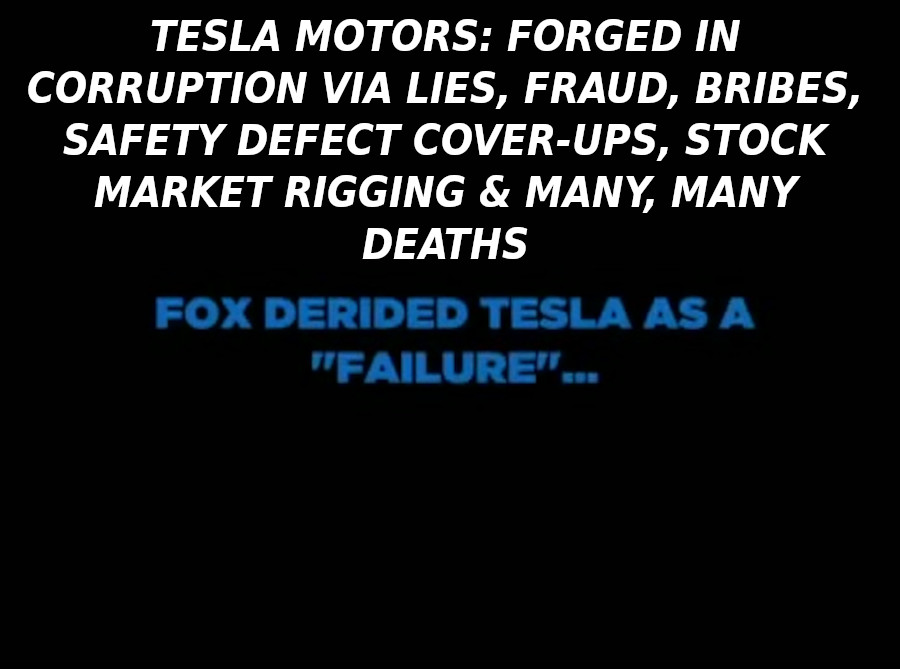EU Puts Google boss under grilling in Brussels for antitrust talks on Google’s manipulation of web and politics
Google CEO Sundar Pichai delivers the keynote during the 2015 Google I/O conference on May 28, 2015 in San Francisco, California (AFP Photo/Justin Sullivan)
San Francisco (AFP) – Google chief executive Sundar Pichai will meet with the European Union’s competition commissioner Margrethe Vestager in Brussels in the coming week, a source familiar with the matter said.
European competition officials have been investigating the US tech giant for years over alleged monopolistic practices involving its search engines, but any resolution has been elusive.
Three successive proposals by Google for an amicable settlement have been rejected.
Vestager last year sent a “statement of objections.” It said Google had diverted traffic from rival price-comparison services like Kelkoo, which operates in several European countries, to favor its own comparison shopping service.
Google responded in late August that Brussels’s findings were wrong and based on a flawed evaluation of the market.
If no agreement is reached and the group is found to have broken the EU’s antitrust rules, it could face fines amounting to billions of dollars.
In addition to the initial inquiry into Google’s search engines which began in late 2010, the European competition service opened a second one in April to examine the group’s Android mobile operating system. This software, used by a wide range of brands, is installed in more than 80 percent of the world’s smartphones.
Pichai became Google’s chief executive officer during a restructuring last year that installed a new holding company, Alphabet, as Google’s parent.
Google now focuses on its core businesses — online activity, Android, YouTube — while its peripheral interests such as driverless cars are overseen directly by Alphabet.
Pichai is scheduled to be in Brussels on Thursday, where he will meet with Vestager as well as Gunther Oettinger, the EU commissioner for digital economy and society, and European Commission President Jean-Claude Juncker. Topics to be discussed include the digital single market as well as digital skills and jobs.
Earlier, Pichai will be in Barcelona on Monday and Tuesday for the Mobile World Congress, and in Paris on Wednesday to meet with publishers.
TESTIMONY AGAINST GOOGLE, IN MULTIPLE INVESTIGATIONS, GROWS DAMNING
Interweb Press
New York (IWP) – Google CEO Sundar Pichai is thought, by many, to be the hapless scapegoat and patsy of Eric Schmidt and Larry Page, Google’s founders. As the noose of investigations and charges tightens around the corporate necks of Schmidt and Page, Pichai is being pushed forward to take the first bullets for the founders misdeeds.
A series of leaks has illuminated some of the challenges Google must overcome. Among them, are the following items provided to EU, FBI and American FTC investigators. The following material is believed to have come from emails in transit to FTC investigators:
“…For the purpose of this testimony “Google” shall refer to Google, Alphabet, Jigsaw, In-Q-Tel, YouTube and the various shell companies, trust funds and organizations which Google’s owners hold.
-
Our organizations witnessed, experienced and documented Google making payments to third party publishers, which Google has personal, political, financial, marketing and operational relationships with, for example: Gawker Media. These publishers then published extensive, carefully crafted, intentional, malicious character assassination, defamation and brand disruption articles which Google manually, consciously and via management contrived electronic adjustment locked into the top locations on the front pages of it’s assets globally. We witnessed and documented the entire process as they did it to us, Nextag and a host of corporations and a large number of Congressional, Presidential and foreign national candidates. The process is known as the “Set-up and kick” and involves Google providing cash or items of value to publishers in exchange for “holding the football” , or writing the attack article which Google then “kicks down the field” by locking the attack article into the top position on it’s global architecture forever. Google engages in these attacks on the public and industry as a “service” provided to illicit clients and as a whim when the ego’s of Google’s billionaire owners are slighted. It is a lie and falsehood that Google’s algorithms and server controls are automatic or arbitrary.
-
Our organizations witnessed, experienced and documented Google manually, consciously, and via management contrived electronic adjustment, change the architecture of the internet including DNS, IP Routing, Web Search re-percussive listings, rankings and adjacency text positioning for so-called “mood manipulation” tactics designed to subliminally influence consumers without their knowledge or consent.
-
Our organizations witnessed Google use payments of cash, search rankings, stock warrants, stock marketing aligned “Flash Boy” stock “pumps” tied into Google news story ranking locks to create stock valuation advantages, “revolving door jobs wherein Google rewards public officials with lucrative jobs in the Google organization, internet brand manipulations, voter tracking and intent data file analysis sharing, venture capitol “no poaching” employee contract manipulation collusion, “AngelGate” and venture capitol black lists to cut-off entrepreneurs who sought to have technologies competitive to Google’s ventures black listed and other services of value to pay public officials and industry partners to assist Google with illicit activates.
-
In the course of our investigations, we set up over 1000 test servers around the world beginning in 2007 and continuing to to today. Other law enforcement and research organizations have now engaged in similar research. A research project headed by Robert Epstein, a psychologist at the American Institute for Behavioral Research and Technology asserts that Google has built the technology to steal elections and manipulate policy decisions in U.S., Asian and European nations. Our technical tests, and the tests of all of these third parties, appears to prove this to be true. In one test, from 2007, until today, we tested the appearance for web positions for Google partner “Elon Musk” and Google’s silent-partnered asset “Tesla Motors”. (Google owns significant financial, political and supply chain interest in Tesla Motors and, in fact, all of Elon Musk’s current ventures.) In each and every case that one of over a hundred news events about a Tesla Motors defect, public safety fire, crash, death or investigation came out, the following events would occur in lock-step synchronization: 1.) General news organizations would report the story 2.) Google would delete any coverage of the story on the internet or down-rank any links to the story of the defect to the deepest sub-25th pages of search results 3.) A sudden story would instantly appear about a “thought” or “idea” that Elon Musk just had about setting off bombs on Mars or something else with news “hype” 4.) Google would put the sudden new cover story in the top slots on the first four pages of Google (because few consumers ever click past the first four pages of Google) 4.) Google would concurrently pump huge amounts of money into the TSLA listing in the stock market and “promote” the stock valuation jump as a reason for people to buy TSLA stock which Google owns 5.) In the momentary stock spike Goldman Sachs, Google’s business partner in many of these deals, would skim the profits off of the top, disadvantaging regular consumers, and deliver those to themselves and Google TSLA holders. This series of events has consistently occurred over this time period and it has seemed contrived and pre-organized. This appears to have happened many times with many companies Google owners hold stock links to. Some nations might consider the use of a business tool, that they own, to rig the stock market using psychological media tricks to benefit their own stock holdings, to be a crime. In the case of part of our team, we were competing with Google and Tesla Motors so Google applied the opposite procedure to us in order to attack and damage us each time we tried to make an announcement such as our award by the U.S. Congress.
-
The Guardian newspaper published an articled entitled: “Revealed: how Google enlisted members of US Congress it bankrolled to fight $6bn EU antitrust case” . We have knowledge that the investigators charges in that article are accurate
-
The Guardian newspaper published an articled entitled: “How Google’s antitrust siege began not far from Windsor Castle ramparts”. We have knowledge that the investigators charges in that article are accurate
-
The New York Times newspaper published an articled entitled: “How Larry Page’s Obsessions Became Google’s Business””. We have knowledge that the investigators charges in that article are accurate and that Google does have a systematized process for stealing the technology of small business entrepreneurs, having experienced this directly with Google.
-
Our organizations have witnessed, experienced and documented activities that appear to be crimes and are most certainly illicit activities by Google. The CBS News 60 Minutes Television Investigations, available for viewing, globally, on 60 Minutes website, called “THE CLEANTECH CRASH” and “THE LOBBYISTS PLAYBOOK” reveals techniques, tactics, processes and actions that Google engaged in and benefited from, that some nations may consider to be crimes. In the United States federal corruption and racketeering lawsuits filed by part of our team, on behalf of their interests and the public interest, we have now been informed by senior investigators from multiple entities, that Google was the primary instigator and beneficiary of those misdeeds and manipulations of public policy. Google’s owners have sat in the White House, dictating domestic policy for their own benefit, more times than every members of the U.S. Congress, combined. Google’s friends, business partners and stock holders have been placed in charge of the U.S. Patent Office, U.S. Department of Energy, FCC and major departments within the White House. We encourage you to verify this with your own investigations but, as you know, the Google and Goldman Sachs lithium mining and commodities rigging investigations have already yielded disturbing connections.
If we can provide further assistance, over 100 of the individuals and companies affected by Google’s threats to society, privacy and public policy stand ready to help….”
Google’s Search Algorithm Could Steal the Presidency
Getty Images
Imagine an election—a close one. You’re undecided. So you type the name of one of the candidates into your search engine of choice. (Actually, let’s not be coy here. In most of the world, one search engine dominates; in Europe and North America, it’s Google.) And Google coughs up, in fractions of a second, articles and facts about that candidate. Great! Now you are an informed voter, right? But a study published this week says that the order of those results, the ranking of positive or negative stories on the screen, can have an enormous influence on the way you vote. And if the election is close enough, the effect could be profound enough to change the outcome.
In other words: Google’s ranking algorithm for search results could accidentally steal the presidency. “We estimate, based on win margins in national elections around the world,” says Robert Epstein, a psychologist at the American Institute for Behavioral Research and Technology and one of the study’s authors, “that Google could determine the outcome of upwards of 25 percent of all national elections.”
Epstein’s paper combines a few years’ worth of experiments in which Epstein and his colleague Ronald Robertson gave people access to information about the race for prime minister in Australia in 2010, two years prior, and then let the mock-voters learn about the candidates via a simulated search engine that displayed real articles.
One group saw positive articles about one candidate first; the other saw positive articles about the other candidate. (A control group saw a random assortment.) The result: Whichever side people saw the positive results for, they were more likely to vote for—by more than 48 percent. The team calls that number the “vote manipulation power,” or VMP. The effect held—strengthened, even—when the researchers swapped in a single negative story into the number-four and number-three spots. Apparently it made the results seem even more neutral and therefore more trustworthy.
But of course that was all artificial—in the lab. So the researchers packed up and went to India in advance of the 2014 Lok Sabha elections, a national campaign with 800 million eligible voters. (Eventually 430 million people voted over the weeks of the actual election.) “I thought this time we’d be lucky if we got 2 or 3 percent, and my gut said we’re gonna get nothing,” Epstein says, “because this is an intense, intense election environment.” Voters get exposed, heavily, to lots of other information besides a mock search engine result.
The team 2,150 found undecided voters and performed a version of the same experiment. And again, VMP was off the charts. Even taking into account some sloppiness in the data-gathering and a tougher time assessing articles for their positive or negative valence, they got an overall VMP of 24 percent. “In some demographic groups in India we had as high as about 72 percent.”
The effect doesn’t have to be enormous to have an enormous effect.
The fact that media, including whatever search and social deliver, can affect decision-making isn’t exactly news. The “Fox News Effect” says that towns that got the conservative-leaning cable channel tended to become more conservative in their voting in the 2000 election. A well-known effect called recency means that people make decisions based on the last thing they heard. Placement on a list also has a known effect. And all that stuff might be too transient to make it all the way to a voting booth, or get swamped by exposure to other media. So in real life VMP is probably much less pronounced.
But the effect doesn’t have to be enormous to have an enormous effect. The Australian election that Epstein and Robertson used in their experiments came down to a margin of less than 1 percent. Half the presidential elections in US history came down to a margin of less than 8 percent. And presidential elections are really 50 separate state-by-state knife fights, with the focus of campaigns not on poll-tested winners or losers but purple “swing states” with razor-thin margins.
So even at an order of magnitude smaller than the experimental effect, VMP could have serious consequences. “Four to 8 percent would get any campaign manager excited,” says Brian Keegan, a computational social scientist at Harvard Business School. “At the end of the day, the fact is that in a lot of races it only takes a swing of 3 or 4 percent. If the search engine is one or two percent, that’s still really persuasive.”
The Rise of the Machines
It’d be easy to go all 1970s-political-thriller on this research, to assume that presidential campaigns, with their ever-increasing level of technological sophistication, might be able to search-engine-optimize their way to victory. But that’s probably not true. “It would cost a lot of money,” says David Shor, a data scientist at Civis Analytics, a Chicago-based consultancy that grew out of the first Obama campaign’s technology group. “Trying to get the media to present something that is favorable to you is a more favorable strategy.”
That’s called, in the parlance of political hackery, “free media,” and, yes, voters like it. “I think that generally people don’t trust campaigns because they tend to have a low opinion of politicians,” Shor says. “They are more receptive to information from institutions for which they have more respect.” Plus, in the presidential campaign high season, whoever the Republican and Democratic nominees are will already have high page ranks because they’ll have a huge number of inbound links, one of Google’s key metrics.
Search and social media companies can certainly have a new kind of influence, though. During the 2010 US congressional elections, researchers at Facebook exposed 61 million users to a message exhorting them to vote—it didn’t matter for whom—and found they were able to generate 340,000 extra votes across the board.
But what if—as Harvard Law professor Jonathan Zittrain has proposed—Facebook didn’t push the “vote” message to a random 61 million users? Instead, using the extensive information the social network maintains on all its subscribers, it could hypothetically push specific messaging to supporters or foes of specific legislation or candidates. Facebook could flip an election; Zittrain calls this “digital gerrymandering.” And if you think that companies like the social media giants would never do such a thing, consider the way that Google mobilized its users against the Secure Online Privacy Act and PROTECT IP Act, or “SOPA-PIPA.”
In their paper, Epstein and Robertson equate digital gerrymandering to what a political operative might call GOTV—Get Out the Vote, the mobilization of activated supporters. It’s a standard campaign move when your base agrees with your positions but isn’t highly motivated—because they feel disenfranchised, let’s say, or have problems getting to polling places. What they call the “search engine manipulation effect,” though, works on undecided voters, swing voters. It’s a method of persuasion.
If executives at Google had decided to study the things we’re studying, they could easily have been flipping elections to their liking with no one having any idea. Robert Epstein
Again, though, it doesn’t require a conspiracy. It’s possible that, as Epstein says, “if executives at Google had decided to study the things we’re studying, they could easily have been flipping elections to their liking with no one having any idea.” But simultaneously more likely and more science-fiction-y is the possibility that this—oh, let’s call it “googlemandering,” why don’t we?—is happening without any human intervention at all. “These numbers are so large that Google executives are irrelevant to the issue,” Epstein says. “If Google’s search algorithm, just through what they call ‘organic processes,’ ends up favoring one candidate over another, that’s enough. In a country like India, that could send millions of votes to one candidate.”
As you’d expect, Google doesn’t think it’s likely their algorithm is stealing elections. “Providing relevant answers has been the cornerstone of Google’s approach to search from the very beginning. It would undermine people’s trust in our results and company if we were to change course,” says a Google spokesperson, who would only comment on condition of anonymity. In short, the algorithms Google uses to rank search results are complicated, ever-changing, and bigger than any one person. A regulatory action that, let’s say, forced Google to change the first search result in a list on a given candidate would break the very thing that makes Google great: giving right answers very quickly all the time. (Plus, it might violate the First Amendment.)
The thing is, though, even though it’s tempting to think of algorithms as the very definition of objective, they’re not. “It’s not really possible to have a completely neutral algorithm,” says Jonathan Bright, a research fellow at the Oxford Internet Institute who studies elections. “I don’t think there’s anyone in Google or Facebook or anywhere else who’s trying to tweak an election. But it’s something these organizations have always struggled with.” Algorithms reflect the values and worldview of the programmers. That’s what an algorithm is, fundamentally. “Do they want to make a good effort to make sure they influence evenly across Democrats and Republicans? Or do they just let the algorithm take its course?” Bright asks.
That course might be scary, if Epstein is right. Add the possibility of search rank influence to the individualization Google can already do based on your gmail, google docs, and every other way you’ve let the company hook into you…combine that with the feedback loop of popular things getting more inbound links and so getting higher search ranking…and the impact stretches way beyond politics. “You can push knowledge, beliefs, attitudes, and behavior among people who are vulnerable any way you want using search rankings,” Epstein says. “Now that we’ve discovered this big effect, how do you kill it?”
How to Rig an Election: Confessions of a Republican Operative…
amazon.com/How-Rig-Election-Confessions-Republican/d…
How Google results could rig an election – The Week
Rick Santorum has a Santorum problem, in that the top Google results when you search his name are not about the man himself, but rather about a dirty sexual neologism.
theweek.com/speedreads/453430/how-google-results-coul…
How to Rig an Election | Harper’s Magazine
Election rigging, Long might have … Secret skullduggery is not even necessary these days such is the boldness of the attempts by the GOP to “rig elections“.
harpers.org/archive/2012/11/how-to-rig-an-election/
FOCUS | How to Rig an Election – Reader Supported News
How to Rig an Election. By Victoria Collier, Harper’s Magazine. 26 October 12 t was a hot summer in 1932 when Louisiana senator Huey “Kingfish” Long arranged to rig …
readersupportednews.org/opinion2/277-75/14198-focus-how-to-rig-an…
Electoral fraud – Wikipedia, the free encyclopedia
Electoral fraud can occur at any stage in the democratic process, but most commonly it occurs during election campaigns, voter registration or during vote-counting.
en.wikipedia.org/wiki/Electoral_fraud
How I Hacked An Electronic Voting Machine | Popular Science
What do you need to rig an election? A basic knowledge of electronics and $30 worth of RadioShack gear, professional hacker Roger Johnston reveals.
popsci.com/gadgets/article/2012-11/how-i-hacked-elec…
Rodger A. Payne’s Blog: Could Google Rig an Election?
I’m interested in international relations, American foreign policy, climate change, US presidential elections, public debate, Kansas Jayhawks basketball …
rpayne.blogspot.com/2013/05/could-google-rig-election.html



